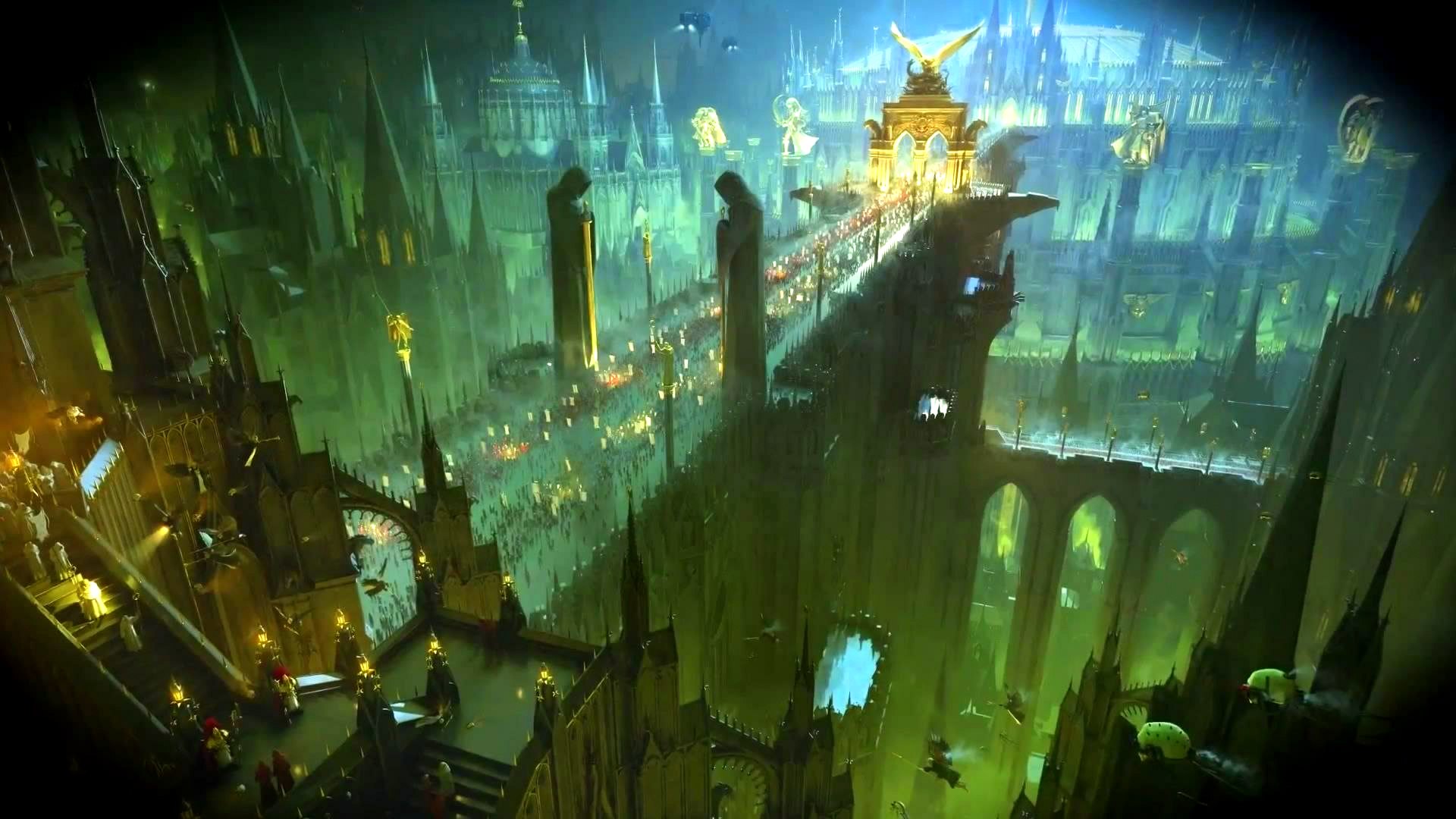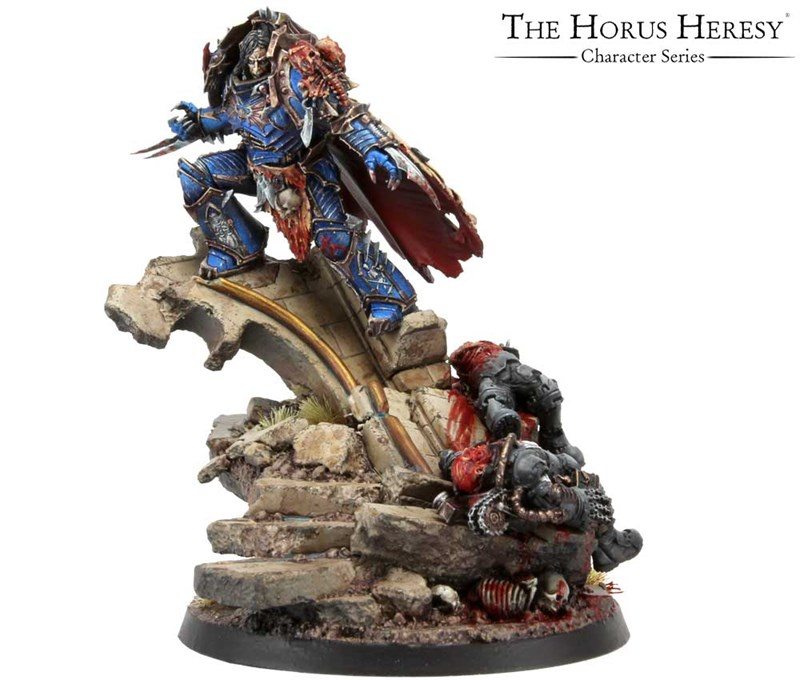
Welcome, 40K fans, to a series of articles I am writing about some of the deeper aspects of Warhammer 40,000.
These articles are a thought exercise, and by writing them I hope to improve my thinking about 40K and its fiction (and maybe about much more). Topics in this series will be wide-ranging and will not shy away from moral or philosophical issues that some may consider sensitive or even controversial. I would rather risk the conversation, so while you or I may not agree, I look forward to hearing why. Consider yourself warned for lore spoilers as well. Also, check the Tactics Corner for more great articles on gaming in 40K!
What Would It Take to Reconcile?
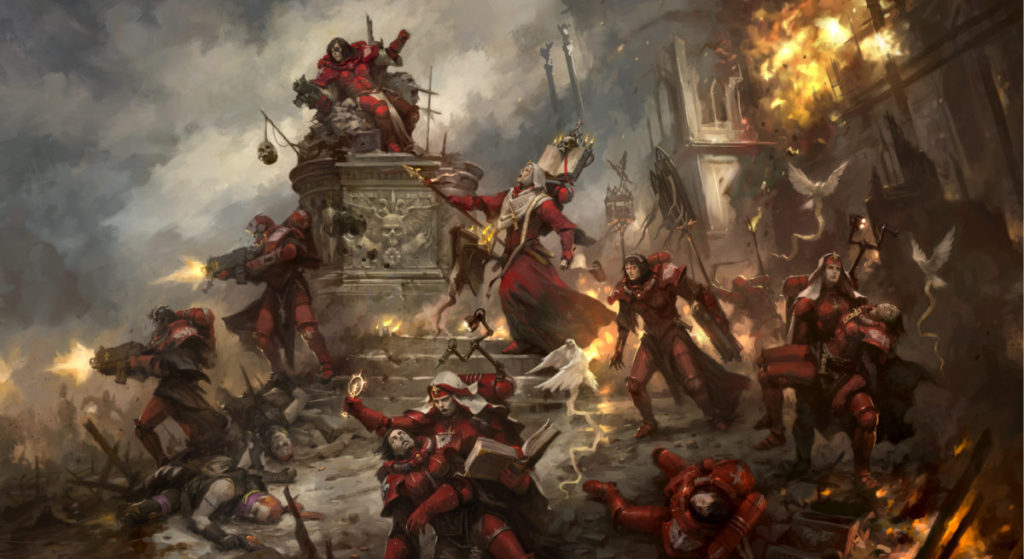
If you’re a reader of this series from its quiet beginnings, you know that I try to apply philosophical or psychological ideas to the Warhammer universe. While understanding that Warhammer is designed to defy or spite the idea of sound living principles, resolution, and progress (unless that progress is also subverted for the sake of some larger moral compromise), Warhammer fiction is at its best when it challenges its fundamental premises. With that in mind, I wanted to touch on the idea of reconciliation – or forgiveness – as an unexplored hypothetical among the factions of Warhammer 40K. What would it take to bring opposed groups back together? When would it need to happen (or when could it have happened) and what would the universe look like if it did?
Freedom in Forgiveness
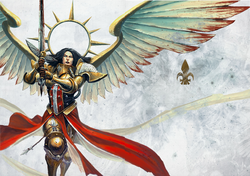
When I speak of reconciliation, I have to talk about forgiveness. Forgiveness as I see it in this context is as follows:
Forgiveness as a philosophical principle is an incredibly powerful transformative tool for individuals who have been wronged, offended, hurt, or otherwise harmed by the actions of an outside person, group, or organization (or even themselves). What true forgiveness allows the harmed one to do is to move on from the baggage associated with the harm and proceed with their lives unencumbered from a mindset that is centered around processing or fixating on their damage. This isn’t to say that forgiveness would, for example, allow a person to regrow an arm or bring back the life of a loved one who was lost, but it can allow this person to heal and have a more bearable quality of life.
Fittingly, forgiveness is an incredibly hard thing to do depending on the severity and long-term consequences of the harm received and the individual in question. Some individuals or groups can become so addicted to the feelings associated with their damage that losing it or letting go of it would require a complete re-orientation of their selves. Some of this is a defense mechanism that is used to protect a person from experiencing similar harm in the future, and sometimes an addiction to the feelings surrounding pain is used as a weapon to wield against self or others as a justification for destructive behaviors, habits, and attitudes.
Deciding who or what deserves forgiveness is always a complicated discussion that comes to different answers depending on your system of values or the culture you live in. By and large, however, the philosophy of forgiveness has less to do with doing something for the party that harmed an individual, and more to do with freeing the self from the burdens of clinging to pain. In this light, whether or not someone deserves forgiveness has very little to do with whether or not forgiving can help you finally move on from the harm you received. In fact, sometimes the best way to remove someone’s power over you is to forgive them and move on. Alternatively, forgiveness could also provide closure and healing for the other party who is seeking reconciliation and sincerely regrets the harm they did.
Applying Reconciliation and Forgiveness to Warhammer

Applying this idea to Warhammer is hard, because Warhammer is essentially “weaponizing your damage” at an obscene scale. Of course, that’s all the more reason to try to imagine what it would look like and how it could transform the Warhammer universe. There are several “unforgivable” relationships to choose from, and I couldn’t hope to put them all in here and analyze them in great detail. I’ll be exploring some of these faction/individual relationships in more detail as they strike me in the future, but I want to point out the one character who inspired this train of thought to me first.
Forgiving The Night Haunter
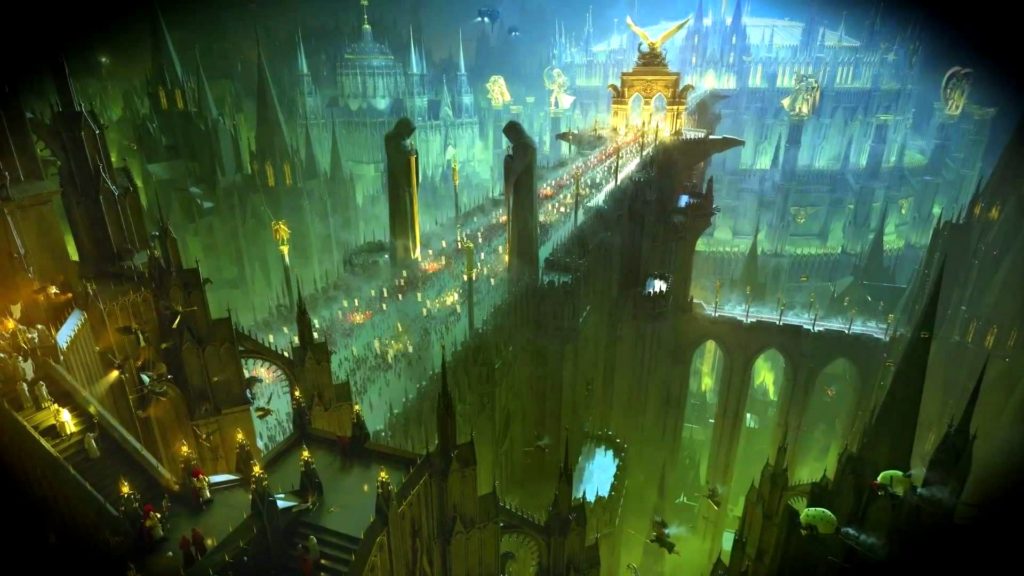
Towards the end of the Ruinstorm novel, Sanguinius and Konrad Curze are speaking together after breaking through the warp storm where the novel gets its name. Earlier in the Heresy, Sanguinius had been prepared to exact judgment on Curze, and had been moments away from killing him on Ultramar before the Lion intervened, an act that spared an undeniably guilty party from a deserved judgment. This act fundamentally changed the outcome of the Horus Heresy, as sparing Curze had given the three Primarchs on Ultramar a reason to punch through towards Terra in an effort to stop Horus.
In this scene, Sanguinius speaks to Curze of the possibility of the Emperor’s forgiveness. Curze, so wrapped up in the visions of his future death at the hands of the Emperor’s assassin, seems to consider for the first time that maybe he doesn’t have to die. After tantalizing Konrad with the possibility, Sanguinius (in an act that could both be merciful and cruel) shoves Curze into a stasis field and out of an airlock. It is merciful because he gives in to Curze’s desire for the bleak future of death to occur, and it is cruel for the same reason after taunting Curze with the possibility of forgiveness.
As some food for thought, here’s a video done by one of my favorite online lore junkies that discusses somewhat the question of Curze’s absolution based on another passage in Warhammer fiction:
What would a forgiven Curze look like? What could he do for the Imperium? The homeworld he hated that was the source for all of the sons he hated is long dead and gone. What penance could he do before returning to leadership in the Imperium? Where would he fit in the post-heresy Imperium of Man?
An Ongoing Conversation
What reconciliation would you be interested in seeing in Warhammer? Let me know what you think in the comments below about this and forgiveness in general.

If you found this interesting, please check out my page Captain Morgan’s Librarius. You can also check out the content on my new YouTube channel for audio versions of my articles and other 40K videos. These are the spaces where I test these ideas in their first drafts and also talk about all the other parts of the hobby that I enjoy from painting, community, and gaming to all the rest. It’s also the best place to converse with me about this and many other topics in 40K. Likes and shares are appreciated. I hope you enjoyed this week’s read, and I’ll see you again next time!
And remember, Frontline Gaming sells gaming products at a discount, every day in their webcart!


